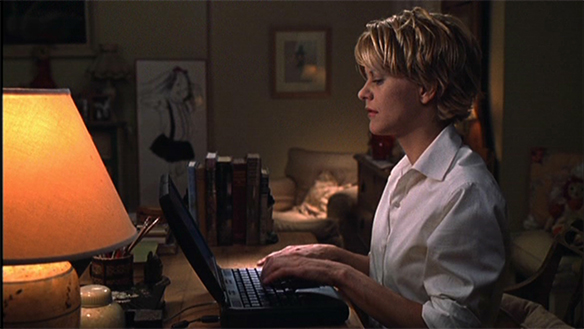
7 Ways To Truly Heal When Your Breakup Makes You Feel Completely Lost
After a breakup many people default to thinking, "there is something wrong with me."

As a therapist I see people almost daily who are trying to heal from the ending of a relationship. That can mean anything from a breakup after dating for a few weeks to a divorce after being married for 20 years. Typical emotions include anger, shock, confusion, anxiety, sadness, loneliness, and shame.
Whether you are experiencing one or all of those feelings, it can be overwhelming. Even the strongest, most independent people can feel lost or helpless. I’ve created a small to-do list that might be helpful if you find yourself on the receiving end of a Dear John (or Jane) letter:
1. GET SOME SPACE
Oftentimes right after a breakup, one person is immediately texting, calling, or trying to see the other person. To get in a last word. To make a last point. To beg them to change their mind. Pause. Give it a minute. Let the dust settle. Let your mind sort things out so you can think clearly. Most of us regret making impulsive decisions, so don’t let regret be another bad feeling on top of the sadness of the breakup.
2. DECIDE WHAT YOUR STORY WILL BE
After any breakup, whether it’s two celebrities or that girl you know from your gym, people want to know “what happened?” Of course you are sad, but the words we use both out loud and in our heads have tremendous power. So when someone asks you, “what happened with so-and-so?” you have a choice when it comes to how to tell your story. And it will help shape the next few days/weeks/months of healing.
You can either choose the victim mentality, “This is the worst thing ever, I’ll never get over it, there must be a million things wrong with me because he doesn’t want to be with me.” Or you can choose to say something a little more empowering, while still being honest. “I’m really hurt. He wasn’t the person I thought he was. It turned out I was wrong and we weren’t a good match. But I’ll be OK. I might just need a little extra support for a while.”
It’s extremely important to be true to yourself and acknowledge your feelings, and allow yourself to feel them. But the therapeutic piece is learning to recognize the difference between a legitimate feeling, “I feel like shit right now,” and an irrational thought, “My life is over.”
3. DON’T ISOLATE
I hear fairly often that after a breakup people just want to curl up in a ball and be alone. They don’t feel social. They don’t feel like talking to anyone. Understandable. But isolation creates space for ruminating. Letting those negative thoughts in your mind take over and send you down that dark rabbit hole. Convincing yourself you weren’t good enough, wondering what he’s doing right now, etc etc.
Are you allowed to curl up and cry? Of course. But only for so long. Being around your friends when you are sad doesn’t always have to be about you. Talk about them, what’s going on in their lives, or do something that doesn’t involve a lot of conversation. Things like yoga and church are even good options because you can feel a sense of belonging and collective energy without having to even make eye contact with anyone.
4. TAKE CARE OF YOUR PHYSICAL BODY
Duh. Except that many people don’t actually do it. We hear the cliche of women crying over a pint of Ben & Jerry’s while watching marathons on Lifetime. After a breakup you can feel physically as well as emotionally exhausted. So time for rest and ice cream is totally allowed. But what are you doing for balance? After a breakup, some of your power is lost. So when we feel helpless or that we’ve lost control, we need some of that back.
My standing joke with clients is that Counseling 101 is: We can’t control other people. Which means the only thing we can control is ourselves and our own actions. One of the best ways I know to feel better about yourself mentally and physically is exercise. In whatever form you’d like. Running, yoga, boxing, spin classes. Whatever works. Even just going outside for a walk will help improve mood. And be mindful of what you are putting in your body. What you eat and drink directly affects mood. Getting enough sleep is key as well. We reset and regroup mentally and physically during sleep, so it’s critical in the healing process.
5. SEE A THERAPIST
After a breakup many people default to thinking, “there is something wrong with me.” Your friends are biased. They love you and will usually take your side no matter what, and that reassurance only goes so far. So if it’s really impacting your self worth, go see a professional.
He/she can help you determine that you are just fine the way you are and help you deal with the disappointment of the relationship ending. Or, if you do have some kind of barrier preventing you from being in a healthy relationship, they can help you understand and change your thoughts and behaviors.
6. MAKE A PLAN FOR WHEN HE/SHE CONTACTS YOU
More often than not, after a breakup someone is reaching out for various reasons. One last booty call. To say “I miss you” or “How are you doing?” Or maybe because there is still “stuff” that needs to be exchanged or given back. Either way, I always advise people to prepare for contact, in whatever form it may show up.
Be prepared with how you’d like to answer, how you might respond to various questions. So that when it happens, as it usually does, you are prepared and more likely to stick to your plan. A good rule in creating such a plan is to keep it kind, but firm. Stay away from insults and negativity. The goal is for you to feel empowered, and trying to attack someone else is typically not the smartest strategy to get you there.











